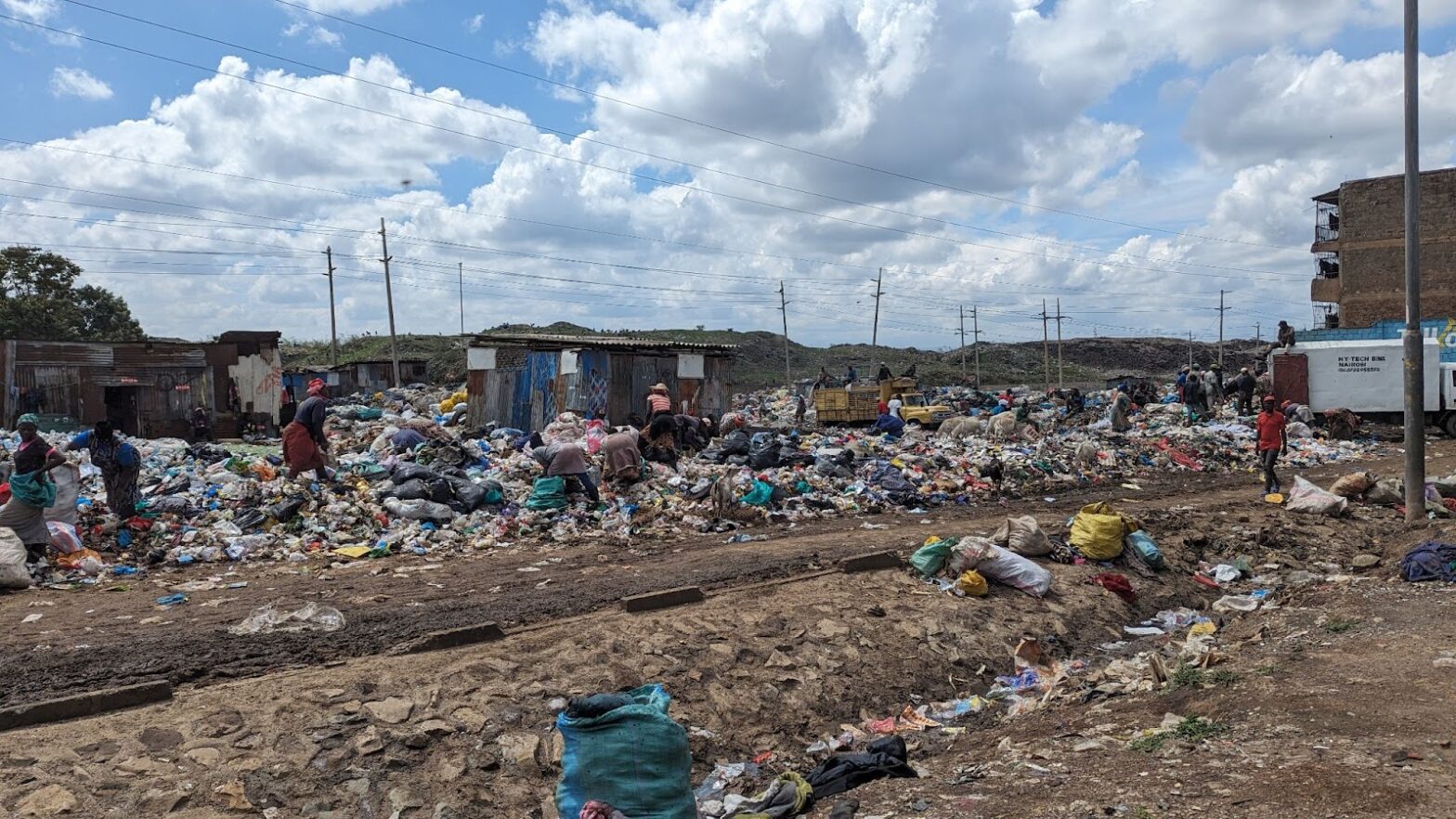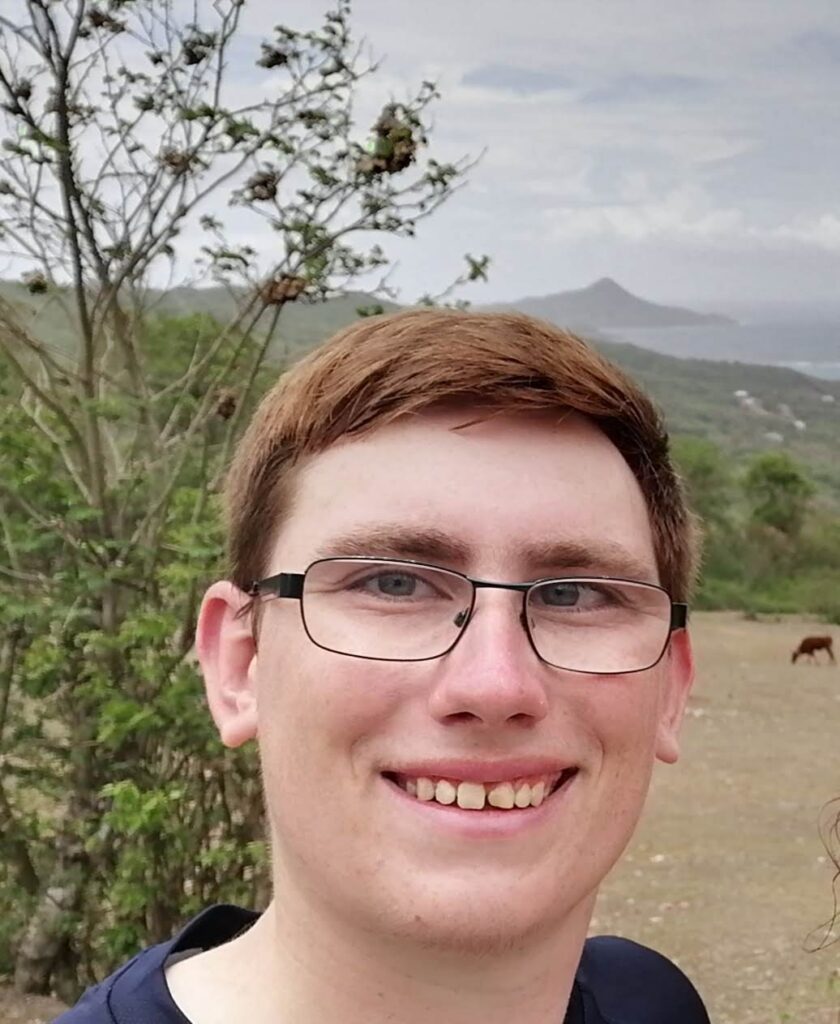A view from inside the UN Global Plastics Treaty Negotiations INC-3

Waste Pickers at Dandora Dumpsite, Nairobi. Photo by Sam Winton.
From 13-19 November 2023, the International Negotiating Committee for the United Nations Environment Programme’s (UNEP) International Legally Binding Instrument on Plastic Pollution will meet for the third time. This time the stakes are higher than ever for securing a high-ambition treaty to end plastic waste.
Throughout the week, Sam Winton, will be providing an exclusive insider’s view of the negotiations as they progress in Nairobi, Kenya. Sam is exploring the development and outcomes of the global plastics treaty through a PhD at the University of Portsmouth and the University of Surrey. Sam is attending the INC-3 negotiations with a delegation from Portsmouth and sending back regular updates about the process. This first blog presents his reflections on where we stand ahead of INC-3, exploring the key challenges to date and Sam’s hopes for what a successful week of negotiations could look like.
Development of the global plastics treaty to date
The adoption of UNEA Resolution 5/14 – End plastic pollution: towards an international legally binding instrument in 2022 marked the beginning of an exciting period for stakeholders aiming to tackle the growing global environmental crisis of severe plastic pollution. The process which will occur over five Intergovernmental Negotiating Committees (INCs), and is due to be concluded by mid 2024 is now well underway. Now, one year on from INC-1 in Punta del Este, Uruguay, and on the eve of the commencement of INC-3 in Nairobi, Kenya, it is more essential than ever that we make significant and meaningful progress in negotiating a plastics treaty.
Questions still remain about how the process of negotiating the Treaty will be conducted. Will the process truly consider ‘the best available science, traditional knowledge, knowledge of indigenous peoples and local knowledge systems’ as stated in the resolution? Early indications after the first two INCs suggest that stakeholders with high ambition must remain resolute to ensure progress is made. In particular, stakeholders interviewed by the University of Portsmouth’s Global Plastics Policy Centre (GPPC) expressed concerns over conflicts of interest present in negotiations and some frustrations about progress being deliberately slowed by delegations during the first two meetings. However, the key objective of INC-2 — to secure a mandate for the chair to produce a zero draft — was achieved and stakeholders remain cautiously optimistic about the process moving forward. We now have a legal text to discuss at INC-3. As many provisions have received little to no substantive attention in negotiations to date, what currently exists is a menu of provisions, each with a number of options ranging from highest to lower ambition which will need to be debated. The current draft contains our best hopes and our worst nightmares and it will be the negotiators’ responsibility to ensure that the treaty maintains a high ambition. On the positive side though, the existence of a legal text opens the possibility that some issues can be resolved relatively quickly, allowing for the acceleration of progress in the forthcoming meetings.
Ambitious standards for tackling plastic pollution
Looking forward, a number of key views are clear. Where multiple options are included for a provision, both scientists and NGOs tend to favour the more ambitious Option 1 in each provision1,2. Global common standards to ensure a level playing field are desired by stakeholders3, and ambitious standards are called for when designing Extended producer responsibility (EPR), recycled content and other waste management provisions to ensure focus is shifted to upstream provisions which reduce primary production of plastics3. Similarly many stakeholders favour production caps, though this will receive strong opposition from industry and some national delegations4. Academic and NGO voices also express a desire to strengthen language around the urgency of action, just transition and the recognition of indigenous people’s leadership1,3.
Clarifying the legal structure of the treaty
The current structure of the zero draft replicates legal patterns, structures and techniques of other conventions and treaties including the Paris Agreement and Minamata Convention5. While this a useful start to the text, we must be careful to learn lessons from the past and for negotiations to succeed, it is critical that key structural and legal challenges are addressed. In the first instance, stakeholders have expressed a desire for more clarity on the legal structure of the treaty, particularly for upstream provisions, and what legal power an eventual governing body may have3,. This becomes particularly acute when assessing methods of implementation. While the text currently suggests National Action Plans may be adopted, research shows their implementation in other treaties to have mixed results6 and generally, stakeholders show a preference for strong legally binding measures over voluntary commitments, along with robust mandatory reporting, monitoring and evaluation1,7.
What INC-3 needs to achieve
Overall, a strong majority of stakeholders have expressed that the zero draft represents a good start for further substantive discussion, and show optimism that there is still the time to develop a meaningful and effective treaty despite clear time pressures. There are two clear priorities for INC-3. First, substantive discussion of the provisions in the zero draft text. Second, securing a mandate for intersessional work, prior to INC-4, both formal and informal, to allow significant development and consensus building over key issues such as EPR and regulations on chemical additives, allowing the limited time at each INC to be better prioritised. I look forward to observing the process of INC-3 and reporting back on the key discussion points, voices and evolution of priorities throughout the next week.
Author biography

Sam Winton is a postgraduate researcher who has worked in the Revolution Plastics team at the University of Portsmouth since its creation in 2020. Sam recently commenced a PhD ‘Exploring the development and outcomes of the global plastics treaty’ at the University of Portsmouth and the University of Surrey. Sam also works with the University of Portsmouth’s Global Plastics Policy Centre (GPPC) researching stakeholder views of the treaty process to date.
With a background in environmental hazards and community preparedness, Sam’s main research focus is working with communities and a broad range of stakeholders to tackle environmental challenges. He has also conducted work with international organisations with a view to creating policies to tackle the global plastics problem, and facilitate sustainable development.